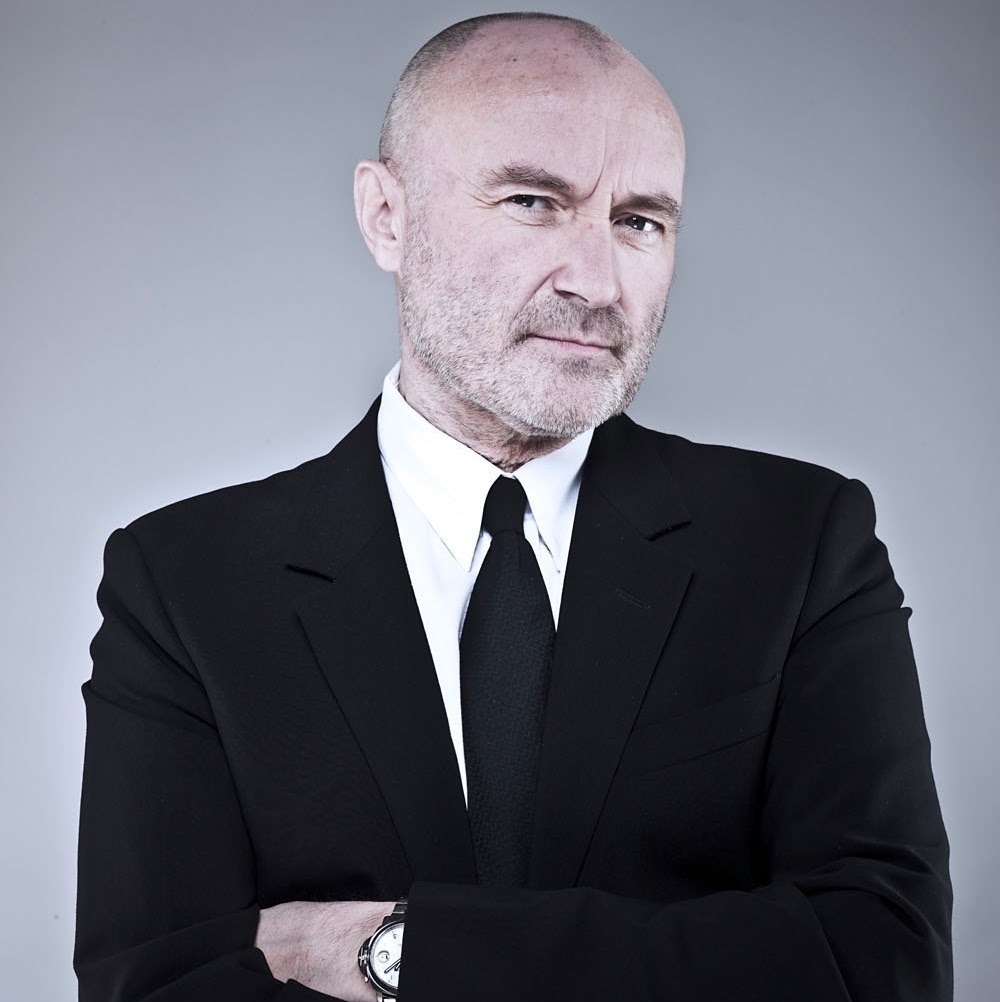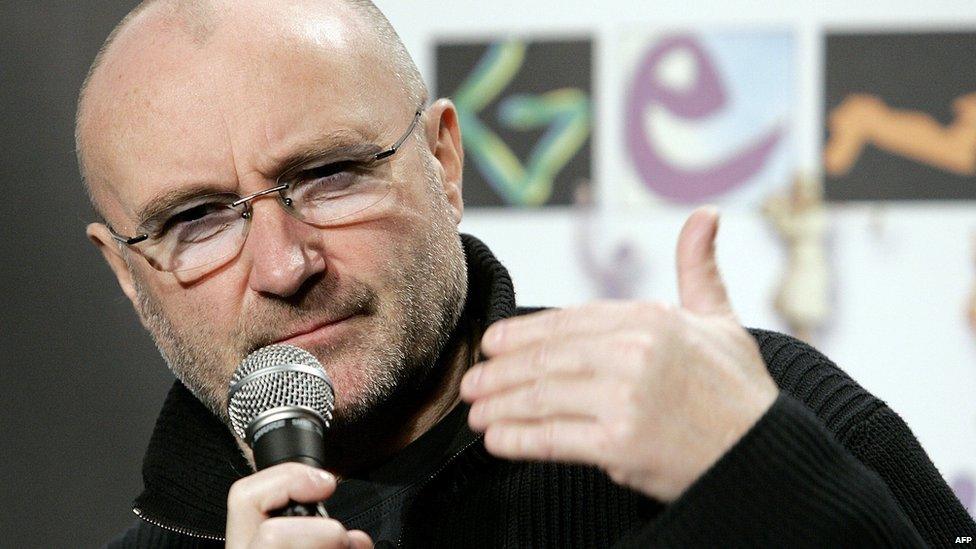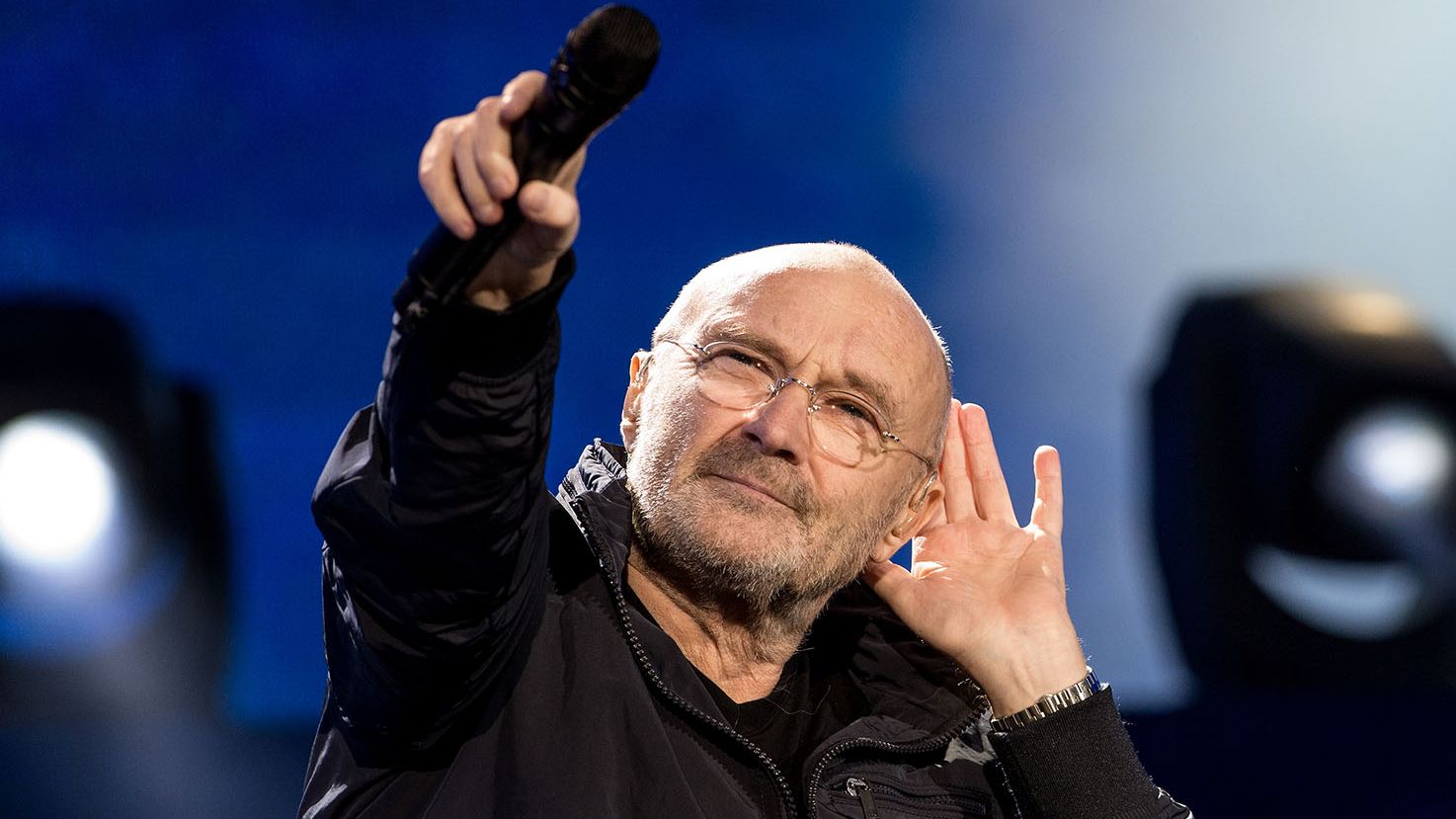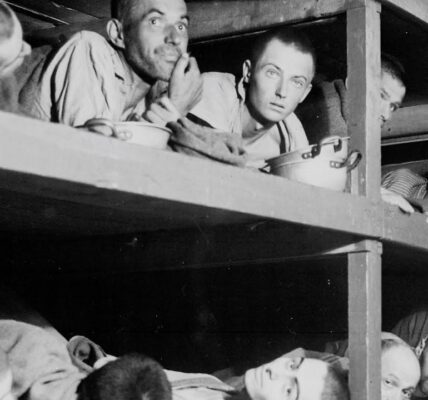Shock and Grief: Phil Collins’ Tribute to Charlie Kirk and the Battle Against LGBT Rights and “WOKE” Culture
the conservative movement. Murdered at Utah Valley University, Kirk, the founder
of Turning Point USA, was a polarizing figure who had long been at the forefront of
battles over American values, freedom of speech, and the growing influence of
progressive ideologies. His passing marked the end of an era for many who saw
him as a guiding light in the fight against what they viewed as the dangers of the
LGBT rights movement and the rise of “WOKE culture”.
 Among those deeply affected by Kirk’s death was legendary musician Phil Collins,
Among those deeply affected by Kirk’s death was legendary musician Phil Collins,known not just for his iconic music career but for his vocal support of conservative
ideals. In a rare moment of public reflection, Collins expressed his profound loss
over the death of his “ally,” describing Kirk as an irreplaceable figure in the battle
against the growing power of progressive political movements. Collins, known for
his typically private nature, took to social media to mourn the loss of Kirk, offering a
tribute to the man whose political stance had often aligned with his own.
Charlie Kirk: The Voice of Conservative Youth
Before his tragic death, Charlie Kirk was one of the most influential voices in
conservative politics, particularly among young people. Through Turning Point
USA, which he founded, Kirk built a platform aimed at mobilizing students and
young conservatives, pushing back against the growing influence of liberal
ideologies in American universities. His rhetoric often targeted the growing LGBT
rights movement, which he saw as a cultural shift that undermined traditional family
values and religious freedoms.

Kirk was a fierce critic of “WOKE culture,” a term used to describe the rising
influence of progressive politics that prioritize social justice, inclusivity, and
equality. For Kirk, WOKE culture represented a growing threat to free speech,
religious liberty, and individval rights. He viewed the push for LGBT rights,
particularly issves like same-sex marriage, transgender rights, and gender identity
in education, as part of a larger, coordinated effort to fundamentally change the
social fabric of America.
While his views earned him many supporters who saw him as a champion for
conservative values, they also made him a divisive figure. For many on the left,
Kirk’s views on LGBT rights were seen as harmful and out of touch with modern
society. However, for his supporters, including Phil Collins, he was a defender of
traditional values in a world that seemed increasingly open to progressive
ideologies.

Phil Collins’ Heartfelt Tribute
Phil Collins, a man known for his music that has resonated with millions, often
stayed out of the political spotlight. However, with the shocking news of Kirk’s
death, Collins took a rare public stance to horor the life and legacy of his “ally.” In a
heartfelt post on social media, Collins expressed his grief over the loss of a man
who, to him, was not only a friend but also a powerful ally in the cultural battle to
preserve traditional values.
Collins described Charlie Kirk as a “guiding light” in the battle against the LGBT
rights movement and WOKE culture, someone who had never wavered in his beliefs
and who had always stood firm in the face of criticism. For Collins, Kirk’s death was
not just the loss of a friend but a deep personal loss for the broader conservative
movement. In his tribute, Collins wrote:
“Charlie was more than just a political figure to me; he was a beacon of hope in a
time when the values we hold dear are under attack. His work against the LGBT
agenda and the growing WOKE movement will resonate for generations to come.
His death is a loss not just for those of us who supported him, but for the future of
the country.”
The message resonated deeply with Collins’ followers and many of Kirk’s
supporters, who praised Collins for taking a public stand in a time when many
celebrities shy away from expressing political views. The tribute, however, also
sparked significant backlash from progressive circles, with critics accusing Collins
and Kirk of perpetuating harmful rhetoric about LGBT people and progressive
causes.

The Battle Against LGBT Rights and WOKE Culture
At the heart of both Charlie Kirk’s and Phil Collins’ statements is the ongoing
cultural battle surrounding LGBT rights and the rise of WOKE culture. For
conservatives like Kirk and Collins, the push for LGBT rights — particularly the
acceptance of same-sex marriage, transgender rights, and gender inclusivity —
represents a fundamental shift away from traditional values. Kirk had long argued
that these shifts were not just about rights, but about changing the very fabric of
American society.
The growing influence of WOKE culture, a term often used pejoratively by
conservatives, has become a major focal point of this battle. For Kirk and his allies,
the rise of social justice movements focused on issues like racial equality, gender
identity, and environmental activism represents a form of political correctness that
stifles free speech and forces people into ideological conformity.
Both Kirk and Collins have been vocal critics of this movement, with Collins
supporting Kirk’s push against what he saw as the imposition of progressive
agendas. Kirk’s death, for Collins, was a painful reminder of the ongoing cultural
wars that have defined much of America’s political discourse over the last few
decades.
:max_bytes(150000):strip_icc():focal(810x264:812x266)/phil-collins-barclaycard-british-summertime-london-121924-9d012c40b46f48508d9af39f36462267.jpg)
A Divided Nation: The Legacy of Charlie Kirk
Charlie Kirk’s death has only deepened the cultural divisions within the United
States. For his supporters, including Phil Collins, Kirk’s legacy as a defender of
traditional values and a voice against the rise of the WOKE movement is one that
should be celebrated and preserved. For others, however, Kirk’s views on LGBT
rights and social justice represent an ouvtdated and harmful perspective that should
not be honored.
As Collins continues to mourn the loss of his ally, the divide over Kirk’s legacy
grows. For some, he is a hero who fought for what they believe in; for others, he is a
symbol of intolerance and divisiveness. In a nation where political and social
divisions seem only to deepen, the battle for how figures like Charlie Kirk will be
remembered is far from over.
Conclusion
The death of Charlie Kirk has not only shaken the conservative movement but also
highlighted the ongoing cultural battle over LGBT rights and WOKE culture. Phil
Collins’ tribute to Kirk serves as a poignant reminder of the ideological divide that
continues to define American society. As the country grapples with these issues,
Kirk’s death has sparked a renewed debate over the role of public figures in
shaping national discourse.
For Collins, the loss of his “ally” is not just a personal tragedy, but a reflection of the
larger cultural struggles that continue to shape the future of America. As the fight
over traditional values versus progressive ideals rages on, the legacy of Charlie Kirk
will continue to be a source of debate, division, and reflection in the years to come.




